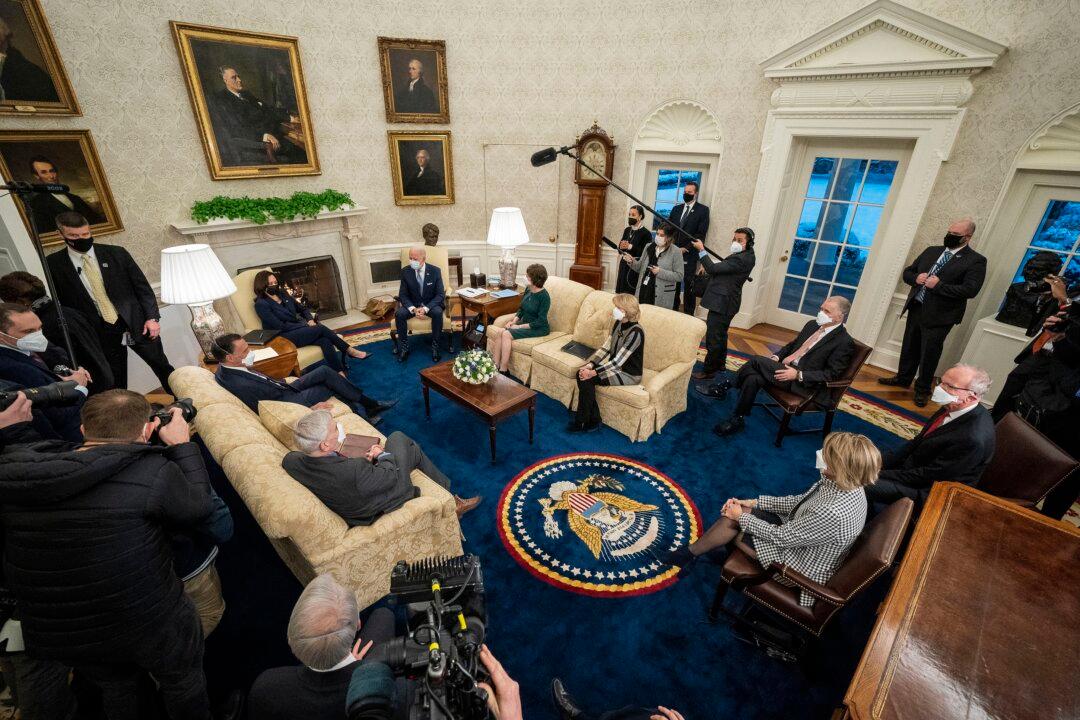While the third group of bipartisan senators try to negotiate an infrastructure package that both sides can agree meets the needs of the nation and be fully paid for, progressives in the Democratic Party are doubtful the GOP will embrace their priorities, including provisions to address climate change.
Unlike Republican lawmakers who have a traditional view of infrastructure that includes roads, bridges, rail, public transport, airports, and rural broadband internet, progressives, like Sens. Bernie Sanders (I-Vt.) and Ed Markey (D-Mass.), and Rep. Alexandria Ocasio Cortez (D-N.Y.) say the package must include “human infrastructure” and their climate change priorities.





